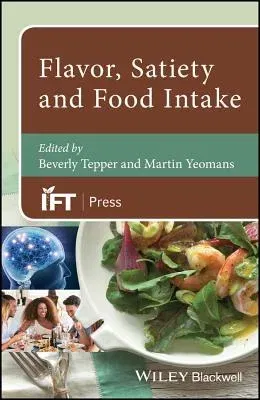This unique book provides a comprehensive review of the latest science
on a key aspect of appetite control. It brings together contributions by
leading researchers worldwide who approach this complex, multifaceted
issue from a variety of differing perspectives, including those of food
science, psychology, nutrition, and medicine, among others.
It is well known that products that require greater oral processing tend
to be more sating. At the same time, the orosensory exposure hypothesis
holds that flavor and texture in the mouth are critical in determining
meal-size. They may act as key predictors of nutritional benefits and so
promote better processing of foods. These two related ideas are at the
forefront of current thinking on flavor-satiety interactions. Yet, until
Flavor, Satiety and Food Intake no book has offered an integrated
treatment of both concepts. The only single-source reference of its
kind, it brings health professionals, product developers, and students
up to speed on the latest thinking and practices in this fascinating and
important area of research.
- Provides readers with a unique and timely summary of critical recent
developments in research on the impact of flavor on satiety
- Explores a topic of central importance both for food professionals
seeking to develop healthier products and health professionals
concerned with obesity and over-eating
- Brings together relevant topics from the fields of food science,
psychology, nutrition and medicine
Flavor, Satiety and Food Intake provides product developers with
valuable information on how to integrate sensory evaluation with product
formulation and marketing. It will also serve as a useful resource for
health professionals and is a must-read for students of a range of
disciplines in which appetite and satiety are studied.

